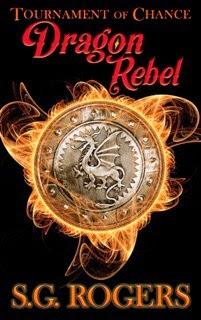Do You Have What it Takes to be a Part of a Book Bundle?
Book bundles or anthologies are one of the hottest
best-selling books right now. It’s a great way to get to know new-to-you
authors and expand your sales base. I’m currently in four book bundles and love
them!
Book bundles are sets of books set among a theme or by the
same author. It’s a wonderful way to group stories. They can be full-length
novels or shorter novellas. Some of the bundles contain brand new stories while
others feature re-releases of an author’s popular work. They range from three
to twelve stories and are usually priced at $0.99.
The hardest part isn’t writing your story. The hardest part
is giving ALL members of the bundle, equal say. They have to agree on the
blurb, the cover, and the promotions. The more members, the more challenging it
is. And then, what happens if there is a disagreement? What happens if someone
doesn’t do their share or is late in submitting their story?
This is why it’s important to plan for these things up
front. Seriously, it’s happened. Even in one group, a person dropped out of the
bundle and we had to reformat without them. In another group, the people
couldn’t agree on the cover. Sometimes a problem can turn into a big deal and
shut down the whole bundle or end a friendship. Many authors are using a book
bundle service which allows for someone else to manage the money and handle the
problems. This is a good idea but it does cost you a percent of your sales. You
have to weigh the value.
As you can see there’s a lot more to a book bundle than just
jumping in and writing your story. It’s best to talk these things through first
and set a plan, then you can enjoy the fruits of your work without the stress
or problems.
Crashing
Into Love:
Lost meets Romancing the Stone--action
adventure, a dash of mystery, and romance to die for.
Seven
planes lift off…seven planes crash…seven stories of struggle, passion and love
in the barren Canadian Wilderness, the coast of England, or the steamy heat of
a tropical island. Romance hangs in the balance between survival and death.
Brace for Impact by Daryl Devoré.
What could be simpler than a routine
plane trip from Toronto, Canada to Caracas, Venezuela for rookie flight
attendant, Lori, and sexy R.C.M.P. officer, Guy Lapierre? But Fate had other
intentions.
Crashing
into You by
Lisa Kumar
When Ashlee Trent meets handsome
businessman Kaiden West on a plane to Australia, he eases her fears even as he
sets her heart ablaze. But after their plane crashes into the ocean and they
wash ashore, will the secrets surrounding him send their budding relationship
into a nosedive?
Crashing
Through Time by Jenna Jaxon
The
most dangerous thing about time travel is knowledge of the past: does she save
him and change history, or let the tragic events play out and lose the love of
her life?
More than hearts can be broken when you crash through time.
More than hearts can be broken when you crash through time.
Love Comes
Crashing In by Brenda Dyer
Best
friends find love in each other's arms, but can that love survive reality?
Falling Hard by D'Ann Lindun
He
craves solitude to forget what a woman did to him. She needs one last chance
before her career ends. Can a plane crash in the Canadian Rockies show them
what really matters?
A Splash of
Romance by Deb
Julienne
Who
knew a plane crash would lead to romance? Hannah Parks is a trauma nurse on her
way to a symposium at the Sister Kenny Rehabilitation Institute. She just
started her bucket list and a plane crash definitely isn't on it. Oliver Lawson's divorce is final and he's
looking to start over. A tropical island, a gorgeous woman. Romance is one
thing, getting there as a result of a crash landing...who knew?
BUY
LINKS:
About
Melissa Keir:
For my
wedding in Vegas, my books and computer came with me but there wasn't enough
room for my wedding shoes. It’s all about priorities! As an avid reader, I was
probably born with a book in hand. Luckily my mom was also an avid reader, so
it was easy to "borrow" her books when my books were finished.
I was
reading from an early age about dashing men on horseback riding to the rescue
of strong willed and capable women who didn't really need rescuing. I came to
expect that women in fairy tales should have fought their own battles. When I
was older, I found Margaret Atwood and realized that women could re-tell
history in their own way and I experimented with changing those basic fairy
tales.
Fortunately
for me, my husband allows me the opportunity to be myself (spend my salary on
books) and still takes care of the really important things for me like killing
spiders and opening jars. As an elementary teacher, teaching children about the
many worlds inside of books is a gift that I’m lucky enough to do for a living.
Teaching the next generation to love reading is a lot of fun! Reading the right
book can make a new world come alive!
Currently
living in the suburbs of Ann Arbor, Michigan with my darling husband,
way-too-grown-up children and spoiled dogs, I enjoy getting away through a book
to escape the harsh winters or summer road construction.













.jpg)












